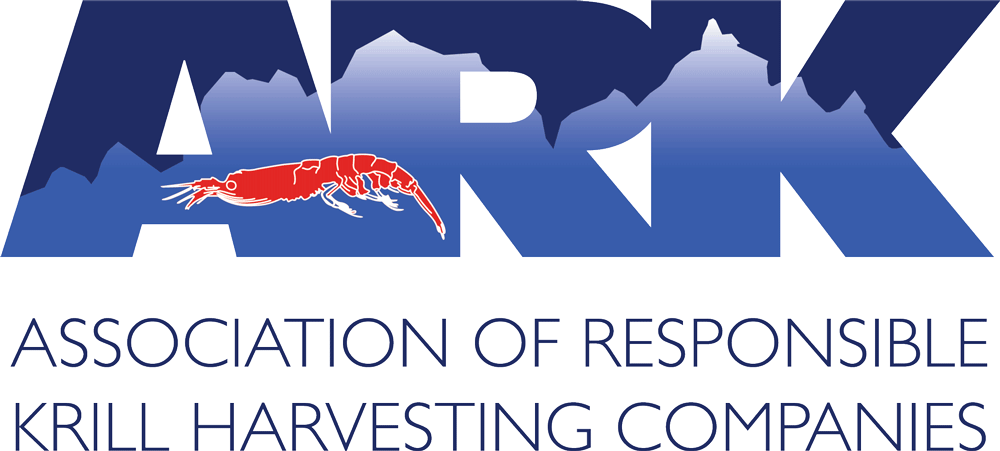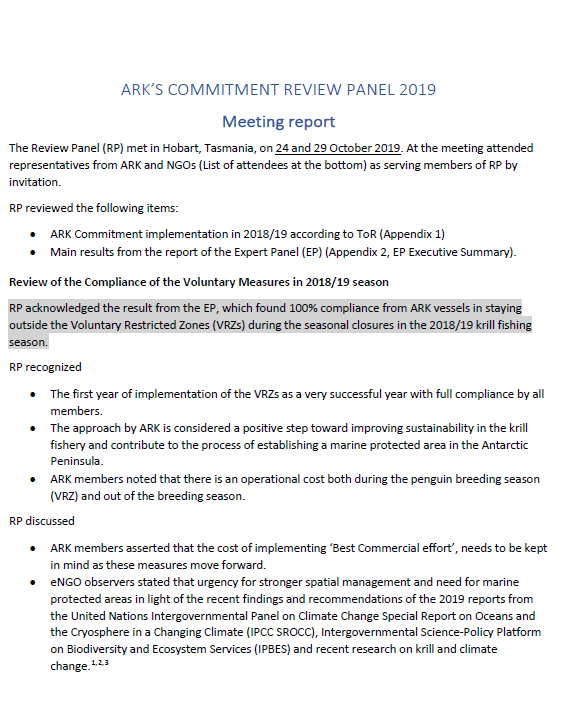ARK Commitment passes its first annual review
In July 2018, ARK Members agreed on a set of voluntary measures to aid in the protection of the ecosystem at large. Now known as the ARK Commitment, these measures established seasonally closed buffer zones for fishing around key penguin colonies in the Antarctic Peninsula and the South Shetland Islands during the breeding season. The commitment also includes developing best practices on transshipment, vessel safety and an annual review process.
The review process consisted of two steps. First, an Expert Panel conducted a technical review on the level of compliance and implementation of the commitment and advised on best practices based on science. Second, a Review Panel, comprised of members of ARK and NGOs working on Antarctic issues, assessed the fulfillment of the objectives of the commitment.
Regarding this process, Dr Olav Rune Godø, chair of the Expert Panel, expressed, “Chairing the expert panel of ARK during the initial year of the volunteer has been an interesting and challenging task. Although some initial difficulties in supporting our work with the needed data occurred, I am impressed by the ability of the industry to go ahead with this major regulation effort, and at the same time, I am deeply thankful for the substantial volunteer effort contributed by the members of the expert panel. This is promising for the future. The success of this ARK initiative depends very much on their ability to work on a long-term basis with major actions taken based on the best available science. Thereby, not only the ecosystem will profit, but new scientific evidence will emerge from this full-scale experiment and support CCAMLR to agree on operational management in the future”.
The voluntary closure of buffer zones (VRZ) around key penguin colonies during the peak of the breeding season is the preeminent measure adopted by ARK.
Revision of the first year of implementation of the ARK Commitment highlighted that -
• All vessels operated by ARK members complied with the VRZs during the 2018/19 fishing season.
• ARK companies continue to apply the above approach during the non-breeding season, noting it is important for the fleet to gain operational experience of the practicalities and potential impact on the commercial fishery of implementing year-round closures.
• The same set of measures is repeated for 2019/20 season, providing valuable protection in the Antarctic Peninsula region.
• ARK companies to ensure the timely delivery of fishing data for each future evaluation of the measures, in support of the work conducted by the Expert Panel.
• ARK develops and implements a fleet data collection plan for krill, and a stratified, long-term monitoring plan for penguins, in collaboration with Members from CCAMLR and NGOs, as outlined in the Expert Panel report.
Ms Valeria Carvajal, Chair of ARK, expressed the significance of these results: “When we agreed on the Commitment measures, we knew it was a difficult decision to implement but an important one. We are thus very satisfied with the response of the fleet this first year. Still, we consider this is a unique precautionary effort from the industry and requires time to be properly evaluated […]. We are grateful for the dedication of the scientists in the Expert Panel and for the fruitful dialogue across ARK and NGOs in the Review Panel, which shows effective cooperation and looks for solutions among different interests in the CCAMLR community”.
The reports from each panel may be reviewed in the following links:



